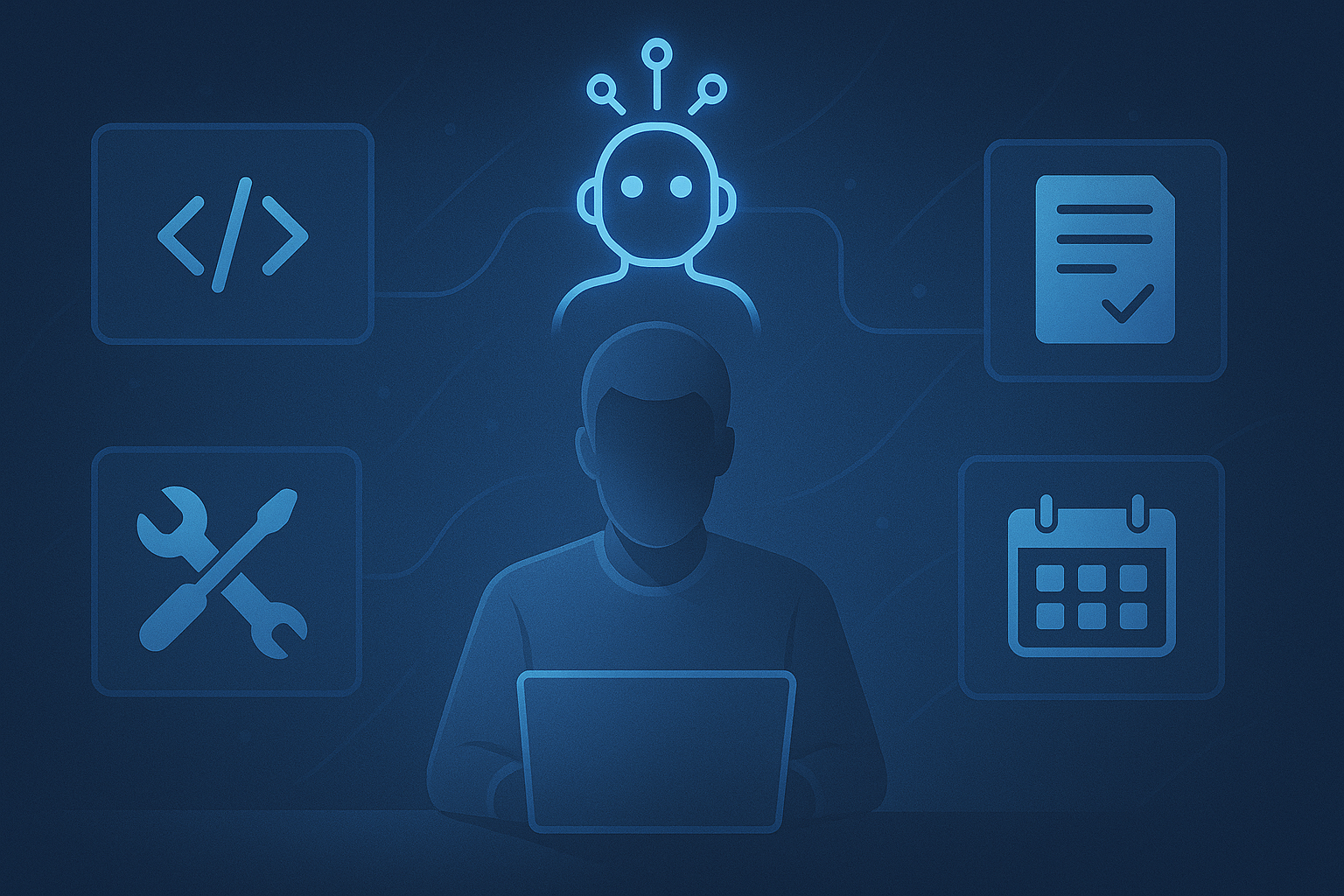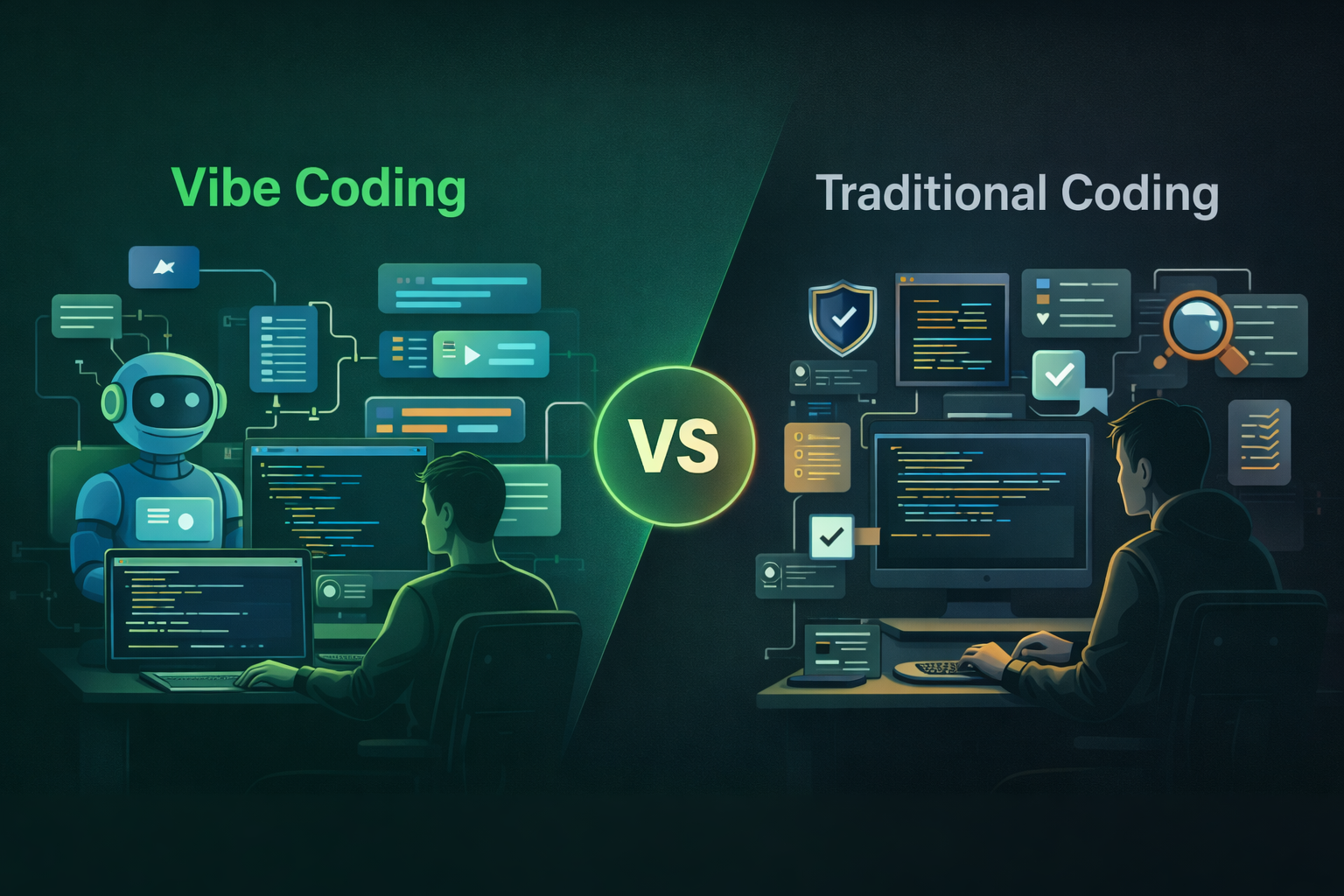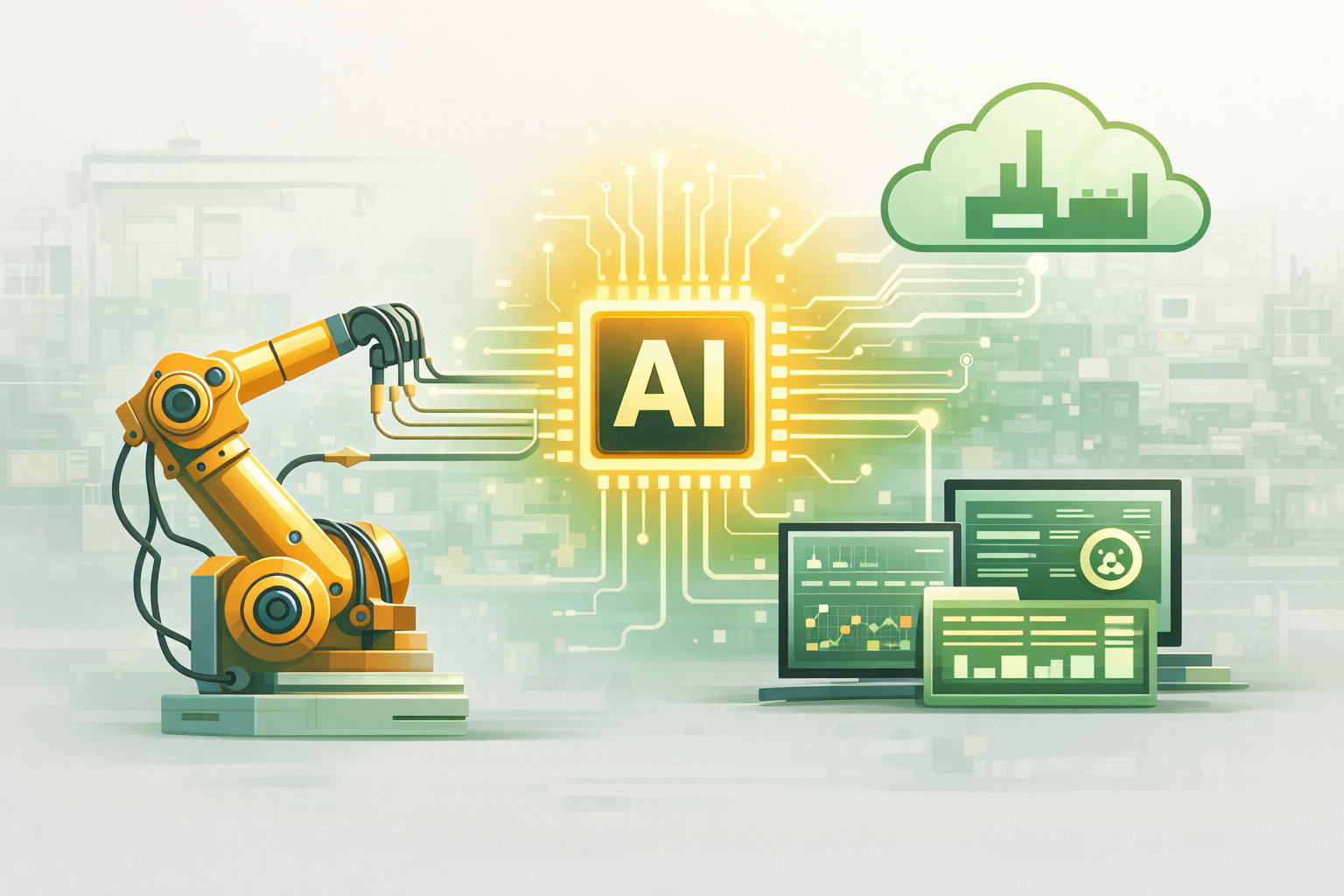AI Agents: The Digital Colleagues Transforming How Software Gets Built

Roman Labish

Over the last few years, something interesting has happened in tech. While teams were busy arguing about frameworks, tooling, and the “right” way to structure a monorepo, AI agents quietly slipped into everyday workflows. They didn’t announce themselves - they just started handling the boring parts of our jobs. And once you get used to that, it’s hard to imagine going back.
Today, you’ll find AI agents everywhere: buried in customer support systems, keeping an eye on logs, nudging pipelines along, or catching mistakes before they turn into emergencies. They don’t feel futuristic anymore - more like helpful digital colleagues who don’t need coffee breaks.
So What Exactly Counts as an AI Agent?
The simplest way to describe an AI agent is this:
it looks at a situation, decides what to do, and acts on it.
Not a rigid script.
Not a chatbot with canned responses.
Something that adapts, reasons, and reacts.
Any functional agent has three building blocks:
- A way to perceive the world - logs, APIs, metrics, anything that feeds it context.
- A decision-making core - sometimes ML, sometimes heuristics, sometimes a hybrid.
- An action layer - sending alerts, updating documentation, triggering workflows, or nudging a developer.
If you’ve ever onboarded a junior engineer who learns fast and quietly takes more work off your hands each week - that’s pretty close to how a good agent behaves.
Agents vs. Bots: The Real Difference
People mix the two constantly, but they’re not the same.
A bot sticks to a script.
An AI agent adapts to whatever is happening.
Example:
- A bot will fire the same error notification every time.
- An agent might reduce the noise, recognize the pattern, highlight the likely root cause, and suggest a fix based on previous deployments.
One reacts. The other understands enough to choose.
Where You’ve Already Seen Them (Probably Without Realizing)
Even if you don’t talk about “AI agents” directly, you’ve met plenty of them:
- the support assistant that remembers what you did last week,
- a calendar that rearranges meetings before you notice conflicts,
- fitness apps that adjust training plans without being asked.
Behind the curtain, they’re even busier - filtering fraud, optimizing supply chains, personalizing marketing flows, or stitching together software delivery pipelines.
Why Companies Keep Investing in Them
Teams rarely complain about tools that:
- reduce busywork,
- eliminate human error,
- and help everyone move a little faster.
AI agents excel at exactly that.
They don’t replace people - they take over work that drains energy and creativity. And because they scale effortlessly, they make it easier to keep projects on track even when resources are limited.
The Hidden Opportunity: Internal Workflows
Most teams think about agents in terms of customer-facing features.
But the biggest improvements usually come from using them internally.
Engineering workflows are full of tiny friction points - someone didn’t update documentation, a test wasn’t run, a ticket is missing a detail, a PR sat untouched all morning. None of these things are catastrophic, but together they slow everything down.
Agents handle these micro-delays surprisingly well.
How AI Agents Actually Help Teams
Developers: More Building, Less Overhead
Here’s a fairly realistic day with an agent in the mix:
- Morning: before anyone logs in, the agent has already reviewed open PRs, flagged suspicious code areas, and surfaced potential vulnerabilities.
- Midday: as commits roll in, the agent updates documentation automatically - no one gets stuck writing changelogs at the end of the sprint.
- Evening: during deployment, the agent watches logs in real time, notices anomalies early, and can trigger a rollback faster than a human scrolling through Kibana.
Developers end up doing what they were hired for: building things, not housekeeping.
QA Engineers: Catching Issues Before They Snowball
Quality assurance is another area where agents shine:
- they generate test scenarios based on user stories,
- draft test plans in minutes,
- run load tests with tools like k6,
- summarize and categorize findings automatically.
The effect is subtle but powerful: QA teams stop being “the last line of defense” and become proactive contributors to product quality.
Project Managers: Finally Free From Update-Chasing
If you’ve ever watched a PM bounce between Slack, Jira, email, Confluence, and three side conversations just to figure out “where things stand,” you know how much time is wasted on status gathering.
Agents help by:
- breaking features into user stories,
- drafting tickets that only need a quick sanity check,
- updating documentation as tasks progress,
- delivering daily snapshots of progress, blockers, and risks.
It doesn’t replace judgment - it just removes the scavenger hunt.
Why Teams Say It Works
AI agents shorten feedback loops and keep the entire system up-to-date without supervision. The result is:
- quicker iteration cycles,
- fewer production mistakes,
- smoother communication,
- and more headspace for actual problem-solving.
Pretty much what every engineering team wants.
What Clients Get Out of It
Even though clients don’t see the agents directly, they do feel the impact:
- features get delivered faster,
- the product aligns more closely with user needs,
- and development costs drop because there’s less rework and fewer slowdowns.
Agents don’t make teams superhuman - they just remove the things that get in the way.
Where Things Are Heading
We’re slowly moving toward environments where multiple agents handle their own domains:
- planning,
- coding support,
- QA preparation,
- deployment monitoring,
- reporting.
A sort of digital department made of small, specialized workers.
Teams that adopt this early will simply move faster and adjust quicker than those relying purely on manual processes.
A Quick Note From Us
At CodeGeeks, we’ve already built this approach into our internal platform, CodeGeeks OS. It isn’t sci-fi or “trying to replace anyone.” It’s just a set of agents helping developers, QA engineers, PMs, and operations stay focused on the work that actually matters.
And frankly, it’s made the entire workflow feel less chaotic.
Other Articles
Curious about the project cost?






.jpg)






